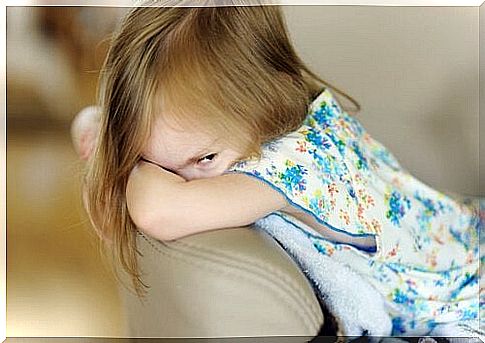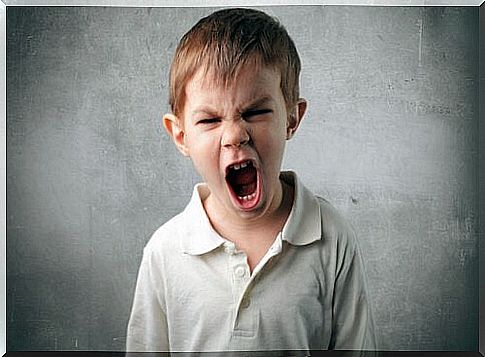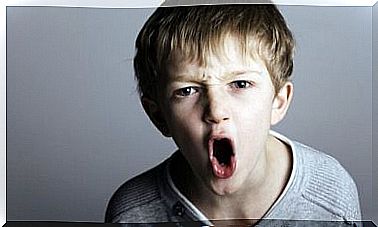Childhood Psychopathy: Symptoms, Causes And Treatment

Childhood psychopathy is a disorder that needs to be talked about. It involves a high degree of destruction, a great load of aggressiveness and a harmful component for society. These characteristics must be stopped early to avoid devastating consequences.
Studying the adult manifestations of psychopathy is important. However, it is just as essential to know what their causes are and how they develop. We live in a society where rates of violence are increasing. And the age of onset of these violent crimes is decreasing more and more.
What are the causes of childhood psychopathy?
The causes of psychopathy are still unknown. For the moment, we are talking about explanatory hypotheses or partial theories. But these theories only explain part of this problem.

There are biological theories that refer to the role of hormones, such as testosterone, or abnormalities in brain structures. Moreover, learning theories point to the importance of the consequences of a childhood full of abuse.
In addition to these biological theories, we find social theories. These speak of a social change that has allowed a relaxation of ethical and moral principles. This fact would explain why a psychopathic tendency has emerged.
Currently, the most relevant theories are interactive theories. These theories point out that it is the biological and genetic factors that reveal the abnormalities that psychopaths suffer from (inability to feel empathy or various other emotions).
However, in childhood psychopathy, we must also take into account the educational factors. Social factors and the way parents act influence behavior. The entourage of the little one can have a crucial role; he will determine if this one will live at the limit of the legality or will become a serial killer.
Essential characteristics of the psychopathic personality
The essential characteristics of the psychopathic personality have been described by Hare (2003). Here they are:
- Superficial and simple mind. Psychopaths do only two things: simulate and act. They are great seducers at the level of initial interpersonal contact.
- Self-centered and presumptuous personality. They are very narcissistic people. They only think about their well-being and the satisfaction of their needs. Psychopaths do not follow social norms: they only follow their own norms and impulses. The selfishness that any child can exhibit gradually disappears or adjusts to norms as the child assimilates or grows up.
Despite everything, the child who hides a psychopathic personality will manifest a persistent egocentricity. It also reveals inflexible demands on others. He defines himself as an intimidating leader in his group of comrades. This will be accentuated as he grows; he will obey only the urgency of his own interests.
- Absence of remorse or guilt. They don’t care about the harm they do to others. They show great destructiveness and are incapable of feeling sorry or feeling bad about their actions. The lack of remorse is linked to a skill: that of rationalizing their behavior. They avoid accepting responsibility for their actions.
- Lack of empathy. All of the above characteristics are related to lack of empathy. They are unable to understand other people’s emotions (or are not interested in this fact). They demonstrate a generalized lack of empathy, which prevents them from having real emotional ties.
- Manipulative people who lie. Psychopaths are stubborn. Even when you discover a lie, they keep making it up. They continue to reinvent their history by setting up a complex web of lies and contradictions.

Thus, psychopaths begin to lie from their earliest childhood. Their first victims are none other than their parents, siblings or schoolmates. They can occasionally learn to control their anger but, in a lasting situation of cohabitation, they are unable to maintain such control. This is how parents can detect their strange personality.
Treatment of childhood psychopathy
Since this is a personality disorder, the treatment options are limited. In the most complicated cases, they will even be zero. However, in other less serious cases some “reasonable cohabitation” will be possible.
In general, unfortunately, expectations should not be too high. We are not going to be successful in ensuring that the young person becomes a person of integrity, loyalty or obtains qualities opposite to those of psychopathy. This can only be controlled moderately (Garrido Genovés, 2003).
Two very important aspects will be the child’s environment and the moment when his parents realize the disorder from which he is suffering. This detection and a consequent start-up of resources and treatments from the age of eight or nine will significantly increase the hopes of success.










